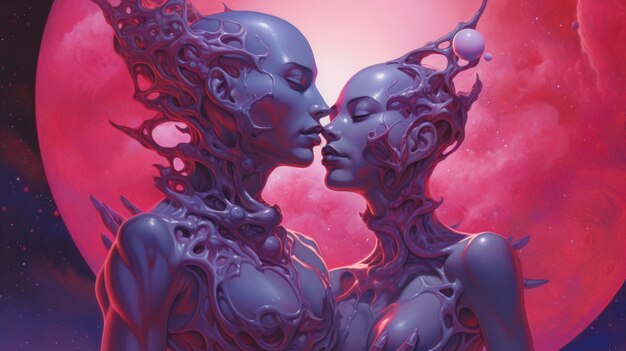
Sign up for our daily and weekly newsletters to stay updated with the latest and exclusive content on AI innovations. Learn More
The philosophical debate between AI “accelerationists” and “doomers” has come to the forefront at OpenAI. The accelerationists push for rapid progress in AI technology, highlighting its massive potential benefits. On the other hand, the doomers advocate for a cautious approach, warning about the risks of unchecked AI development.
According to various reports, there has been a clash between CEO Sam Altman, who aims to further monetize OpenAI’s developments, and the board, which focuses on safety measures in line with their non-profit charter. The board initially won the conflict, leading to Altman’s dismissal, an event described as a “palace coup.”
Altman plays the central role in this story, while chief AI scientist and board member Ilya Sutskever emerges as the antagonist. Sutskever, an early developer of deep learning and a former student of AI pioneer Geoffrey Hinton, reportedly pushed for the CEO change. Axios suggested that Sutskever might have convinced board members that Altman’s rapid AI deployment approach was too risky.
According to The Information, Sutskever told employees in an emergency meeting that the board was fulfilling its duty to the non-profit mission of ensuring OpenAI builds AI that benefits all of humanity.
However, industry observers, investors, and many OpenAI employees backed Altman. A significant reaction ensued, leading the board to reconsider and negotiate Altman’s potential return as CEO. This dramatic turn of events resulted in his reinstatement, at least for now.
Altman is not a flamboyant figure but is seen as a measured advocate for advancing AI while acknowledging potential existential threats. Last spring, he warned about these risks in Washington, D.C., calling for government regulation of frontier AI models. Some have viewed this as an attempt to stifle smaller competitors.
Altman is also involved in several side projects, including World Coin, a cryptocurrency-based initiative to authenticate identity for future universal basic income payments once AI displaces jobs. He has also been working on “Tigris,” an initiative to create an AI-focused chip company to compete with Nvidia and raising funds for a hardware device developed with design expert Jony Ive.
Altman’s entrepreneurial credentials are strong, contrasting with OpenAI’s non-profit mission to develop AI that benefits humanity.
In America, we value “rainmakers.” Altman’s innovative drive, funding prowess, and leadership showcase these qualities. The support for Altman in the OpenAI power struggle is thus unsurprising. He also had options beyond OpenAI, with Microsoft CEO Satya Nadella pledging support.
Shortly after his firing, Altman, along with OpenAI co-founder Greg Brockman, was set to join Microsoft to lead a new AI research team. More than 700 of OpenAI’s approximately 770 employees signed a letter threatening to leave if the entire board did not resign.
The board did not resign but instead appointed former Twitch CEO Emmett Shear as interim CEO. Surprisingly, Sutskever expressed regret about how Altman’s firing was handled, noting it damaged trust.
With Altman and Brockman’s return, and the replacement of the prior board with new members likely less focused on the doomers’ perspective, we can only speculate on future developments. It remains unclear whether Sutskever will stay with OpenAI.
Microsoft appears committed to advancing AI with urgency, integrating OpenAI’s technologies into many of their products. OpenAI and Microsoft are now more closely linked than ever.
Meanwhile, Anthropic released Claude 2.1, boasting a much larger context window than GPT-4 and significantly reducing hallucinations.
The situation at OpenAI mirrors the broader debate on balancing AI innovation’s potential benefits with the need for safety and ethical considerations. The cautious voices argue for thoughtful reflection on the downsides of unchecked AI progress, which was the stance of the former OpenAI board. This balance reflects our societal values and the future we aim to shape. The conflict between Altman and OpenAI symbolizes a crucial moment in our technological evolution.